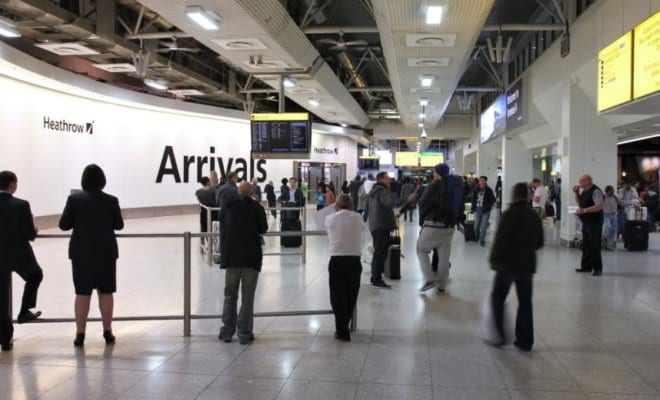Immigration
Britain Scraps Landing Cards for Indians, Others

London Heathrow Airport
Photo: Bigstock
Britain has decided to do away with the landing cards that visitors from non-European countries, including India, were required to fill. The decision has been taken as part of UK Border Force’s digitization process for border controls, and also to increase passenger comfort and reduce costs.
Paper-based System
The paper-based system costs around £3.6 million every year, and has been in practice since 1971. It requires passengers arriving at the UK airports to fill in information, including details about their place of birth, profession and reason for their stay. Almost 16 million international visitors to the country fill out landing cards annually. The cessation of the archaic practice will not result in the loss of any data used for security checks, the home office said, PTI reported.
After the landing cards are scrapped, non-EU passengers, including those from India, which make up one of the largest groups coming to the UK, will be checked against police, security and immigration watch lists for the purpose of every visitor’s identity verification and confirmation of status.
232 e-Gates
According to the department, the changes will free up staff and enable Border Force to better deploy their resources. The plan is part of the home office’s ongoing transformation at the border, aimed to enhance Border Force’s ability to facilitate legitimate travel and ensure the border security. Under the initiative, 232 e-gates have already been introduced at 21 ports and used by more than a million passengers since June. It is also expected to improve the experience for travellers as they will no longer be required to fill out the paper cards while on board the flight or in queues at airports and ports.
Border Force has also increased the use of Advance Passenger Information, with systems in place to receive data on 100 per cent of scheduled flights for all international journeys to and from the UK, according to a statement from the home office. The proposals will also have a positive impact on the industry, and players will no longer be required to purchase and distribute landing cards to passengers.
The new plan is expected to come into effect in the autumn after a four-week consultation period with carriers, ports and those that use statistics gathered from landing card data.

You must be logged in to post a comment Login